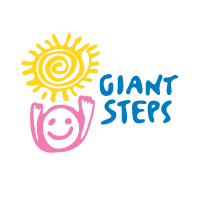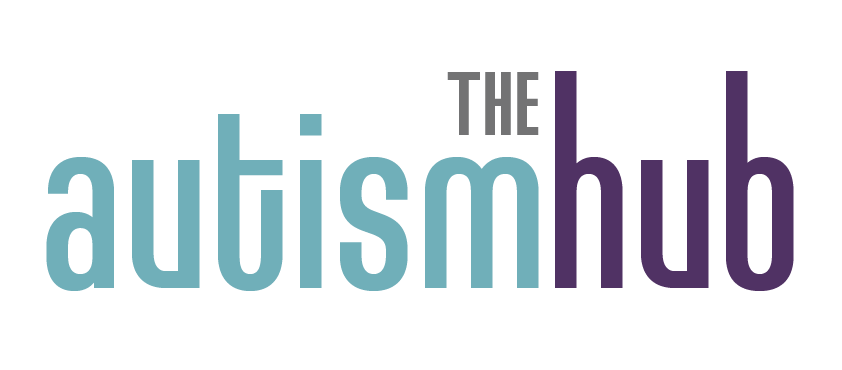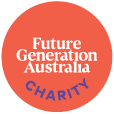This is a Twilight Series Course over Multiple Dates
Mon 17 Mar | Mon 7 Apr | Mon 5 May | Mon 19 May
Cost
$ 240 (for 4 sessions)
Course Registration
BOOK NOWTime & Date
17/03/2025 4:30 pm - 6:00 pm
Venue
The Autism Training Hub Sydney
Building 21, Suttor Street, Gladesville NSW 2111
Course Description
A four-part course tailored specifically for educational institutions, exploring the unique learning styles and potential challenges faced by Autistic children within the school environment. The course is geared towards teachers, support
Course Description
A four-part course tailored specifically for educational institutions, exploring the unique learning styles and potential challenges faced by Autistic children within the school environment.
The course is geared towards teachers, support staff and school leaders working with autistic students who may encounter difficulties in engagement and learning during their school years.
Each session lays the groundwork for subsequent topics with an expectation that participants attend all 4 sessions. Participants will gain comprehensive insights into selecting and applying strategies and practical supports in their schools.
Twilight Series: Session 1
Understanding Autism and Cognitive Differences
Monday 17 March
4:30 pm – 6:00 pm
Rachael Bowen and Caitlin Millauro
This session will support teachers and educators to further understand Autism beyond a diagnostic label. It will explore differences in the way Autistic children engage with the world and how this could be considered in the context of the classroom. Suggestions for supports and strategies will be offered.
- Broaden your understanding of Autism to include the different strengths and preferences Autistic children have in thinking, socialising and processing information from the world around them.
- Explore some of the challenges that Autistic children may experience in the classroom.
- Consider how practical supports and strategies might be implemented to enhance a child’s independence and engagement.
Twilight Series: Session 2
Unpacking the Impact of Anxiety on Behaviour and Engagement
Monday 7 April
4:30 pm – 6:00 pm
Helen Appleton and Kaitlin Hunter
Heightened anxiety is known to increase ‘challenging behaviour’ and have a negative impact on a student’s participation and engagement in the classroom. Explore how you might best support the well-being of autistic students learning in your school and classroom by developing your understanding of anxiety and how it may manifest for neurodiverse learners.
- Consider how neurodevelopmental differences may contribute to a heightened experience of anxiety and stress in autism.
- Understand how anxiety may manifest in the context of the classroom for your Autistic students.
- Explore practical strategies that can be implemented in the classroom to proactively support student well-being.
Twilight Series: Session 3
Sensory Processing Differences
Monday 5 May
4:30 pm – 6:00 pm
Cheryl Toth and Caitlin Millauro
The world can often feel like an overwhelming place for the Autistic children we support. This session will explore the sensory processing differences that exist for Autistic children and how this may present for every individual.
Practical suggestions for supporting the sensory needs of Autistic children, including considerations related to the environment and teaching and learning experiences, will be shared.
- Develop an understanding of sensory processing.
- Acknowledge the impact of sensory processing throughout the day.
- Consider how sensory processing styles may present within the school setting.
- Learn about key strategies for supporting sensory processing.
Twilight Series: Session 4
Communication Supports
Monday 19 May
4:30 pm – 6:00 pm
Katherine Halter and Natasha Craze
Understanding the communication profile of each individual child is fundamental to providing supports and strategies that foster engagement, participation and autonomy in the school environment. Deepen your comprehension about how communication supports not only enhance understanding but also enable students to participate and contribute meaningfully as a member of their school community, regardless of whether the individual uses speech or not as their preferred communication mode.
- Discover why communication supports are not only useful, but often essential for both speaking and non-speaking autistic students.
- Understand the communication preferences of Autistic students broadly, and apply your understanding to further discover the communication preferences and support needs of an autistic learner in your class.
- Explore a range of communication supports for different purposes, including the use of concrete supports for supporting understanding and expression.
Presenter(s) for this Course
-
Caitlin Millauro
Caitlin Millauro
Bachelor of Arts (Macquarie University)
Bachelor of Education (Primary) (Macquarie University)
Masters of Special Education (Macquarie University)Caitlin Millauro has worked across a variety of educational programs including primary age and young adult services. She has been involved with the Student Engagement Support Team at Giant Steps particularly focusing on the area of effective data collection. In 2018-19 Caitlin conducted a school-based research project, focusing specifically on effective literacy programs that can be adapted for students with additional learning needs.
-
Cheryl Toth
Cheryl Toth
Bachelor of Health Science (Honours) (University of Western Sydney)
Masters of Occupational Therapy (University of Western Sydney)Cheryl has worked at Giant Steps since 2017. Cheryl is particularly interested in working with children and young adults with autism and disabilities and has a growing interest in the ways cognitive rehabilitation can impact children with spinal cord injuries. Cheryl is passionate about assisting children to progress in their levels of independence and maintain or improve personal productivity in self-care skills, emotions, regulation, sensory processing, engagement and overall quality of life. Cheryl enjoys working as a part of a transdisciplinary team to support children not only in a classroom but also in the community to generalise skills across all contexts.
-
Dr. Helen Appleton
Dr. Helen Appleton
Bachelor’s Degree of Science (major in Psychology) (Sydney University)
Post Graduate Diploma in Social Psychology (Sydney University)
PhD; ‘An Exploration of the Presence and Behavioural Manifestation of Anxiety for Individuals with Autism Spectrum Disorder and Intellectual Disability’ (2022)(Griffith University)Dr. Helen Appleton is the Family and Student Support Therapist for Giant Steps Australia. In this role, she oversees psychological supports throughout our schools, with a special interest in mental health concerns, complex support needs and interagency training and liaising. She has created a school-wide Siblings Support Program and is currently Director of the Rob Llewelyn-Jones Clinical Centre at Giant Steps.
Helen is now sharing her research internationally, through conferences and upcoming publications. This unique research comes from her PhD completed in 2022 and focuses on how anxiety manifests in individuals with autism and an intellectual disability.
-
Kaitlin Hunter
Kaitlin Hunter
Bachelor of Inclusive Education (Australian Catholic University)
Masters of Teaching (Primary)(Australian Catholic University)Kaitlin Hunter has been a Teacher at Giant Steps Sydney since 2017 and is passionate about designing inclusive learning environments where every student can succeed. Working in both primary and secondary education and across abilities, Kaitlin has developed and implemented exciting and engaging learning lessons across the curriculum to best suit all of her students.
Kaitlin’s dedication and compassion makes her an invaluable teacher within our organisation. She now draws on her expertise to mentor other teachers and educators at Giant Steps on how to create inclusive classrooms.
-
Katherine Halter
Katherine Halter
Bachelor of Speech and Hearing Sciences (Macquarie University)
Master of Speech and Language Pathology (Macquarie University)Katherine Halter has been a Speech Pathologist at Giant Steps Australia since 2017. She is passionate about supporting people with disability and has experience in providing individualised assessment and intervention for people with Autism Spectrum Disorder and Intellectual Disability including designing a variety of Alternative and Augmentative Communication systems to suit individual communication needs. She has worked alongside teachers to integrate these strategies and supports into teaching and learning experiences.
Katherine enjoys working in a dynamic team environment with multiple professionals to provide a holistic approach to targeting communication and comprehension. Katherine has a passion for supporting carers and members of the wider community to understand and implement strategies and supports that promote the generalisation of skills across contexts.
-
Natasha Craze
Natasha Craze
Bachelor of Health Science (Hearing and Speech) (University of Sydney)
Masters of Teaching (Primary) (University of New England)Natasha Craze has worked at Giant Steps for almost 20 years supporting students aged between 5 – 17 years to participate in learning experiences including those in the wider community.
During her time, Natasha has held a variety of roles including the teacher’s aide, classroom teacher and teacher mentor roles. Natasha uses her significant experience to support our team of educators and teachers to collaborate in our transdisciplinary team of allied health professionals and teachers. Natasha is passionate about helping other team members navigate and refine their teaching practice.
Venue Accessibility
Building
Ramp or level access
Parking
Available close by
Toilets
Available in the building or nearby
Enquiries
The Autism Hub professional learning courses aim to increase participants knowledge and confidence to best support the learning of autistic children and adults.
For enquiries specific to this course please contact autismhub@giantsteps.net.au
Supported By







